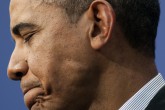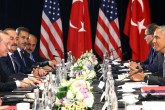While constituting the top-level platform of global economic governance that brings together leaders of the world’s largest and “systemically important” economies, G20 summits excel as perfect venues for public diplomacy, attracting passionate global attention. As such, this year’s G20 Summit in Hangzhou, China is likely to be a showcase event during which Xi Jinping and his administration will do their utmost to demonstrate the amazing economic prowess of the “middle kingdom” at every available opportunity. The glamorous precedent set by the 2008 Olympic Games in Beijing, which were recorded as the most expensive summer Olympics in sporting history, might give spectators a rough idea about what to expect. President Recep Tayyip Erdoğan headed to Hangzhou as the chair of the preceding summit and a member of the G20 Troika, as well as a leader carrying critical diplomatic and economic files in his public diplomacy portfolio. After all, the tumultuous crises and transformations that have taken place in Turkey since the Antalya Summit, including a change of personnel at the Prime Ministry, which saw Binali Yıldırım showing finesse in accelerating major infrastructure projects and normalizing relations with regional actors. The foreign policy line has gone through a radical overhaul so as to heal the wounds of the jet crisis with Russia, the Mavi Marmara incident with Israel and post-coup tensions with Egypt. The country faced a coup attempt perpetrated by the followers of messianic Gülenist Terror Group (FETÖ), which was foiled by a popular resistance initiative manifested in the brave sacrifices of 240 dead and 3,000 wounded. Terrorist attacks by the PKK and DAESH in metropolitan areas, which intensified over the course of the year, cost the lives of hundreds of civilians and security personnel. Most recently, the Turkish army conducted a sweeping military operation into northern Syria in support of Free Syrian Army (FSA) forces to clean the surroundings of Jarablus from DAESH and interrupt the formation of a de facto People’s Protection Units (YPG) corridor, which might be used as a pretext for the future territorial disintegration of Syria. The Hangzhou summit will be a perfect opportunity for Erdoğan to brief the world leaders face to face concerning the recent predicament that his country came through over the course of the last few months. The occasion will mark the first major diplomatic summit that he has participated in since the foiled coup attempt and the military operation in Jarablus.
As to the global agenda of the G20 summit, the Chinese seem to be carrying the theme of “inclusive development” from last year and added an emphasis on innovation as the engine of economic growth. Xi Jinping’s grandiose “One belt, one road” project which aims to reintegrate the historical Silk Road via a sophisticated network of energy, communications and transport links might leave its mark on proceedings in the light of new financial mechanisms such as the Asian Infrastructure Development Bank. The conventional G20 agenda around issues of financial governance, protectionism, control over money laundering and tax havens and preventing financing of terror is likely to be discussed in the wake of systemic concerns stemming from stagnant growth in the world economy, rise of neo-protectionism and currency wars.
Turkey’s peculiar contribution to this global agenda might come through concrete proposals to reform the regime of international credit rating agencies so as to create a more open and competitive playing field. S&P, Moody’s and Fitch have almost monopolized the credit rating market and their evaluations frequently reflect biased political motivations against emerging markets and developing countries. Building on the proposals raised in the last summit for the formation of a dialogue mechanism between sub-Saharan Africa and G20 countries, Erdoğan could effectively maintain his stance to deliver the demands of the global south in the main theater of global governance. Furthermore, financial support to the countries hosting the bulk of refugees from Syria such as Turkey, Lebanon and Jordan might be brought to the G20 agenda with a view to fund specific measures aimed at educating refugee children in collaboration with the World Bank and UNICEF and facilitating employment of refugees in collaboration with the ILO. Finally, as a state fighting against FETÖ, which secretly transferred billions of dollars to offshore centers and tax havens, Turkey might play a leading role in spearheading collaborative schemes aimed at preventing international money laundering. We are looking forward to a colorful summit in Hangzhou.
[Daily Sabah, September 3, 2016]
In this article
- Economy
- Opinion
- 2008
- 2016
- Africa
- Arabian peninsula
- China
- DAESH
- Daily Sabah
- Egypt
- Free Syrian Army
- Free Syrian Army (FSA)
- G20
- Global Actors | Local Actors
- Israel
- Jordan
- Kurdistan Workers' Party Terrorist Organization (PKK)
- Lebanon
- Middle East
- People's Protection Units (YPG)
- PKK - YPG - SDF - PYD - YPJ - SDG - HBDH - HPG - KCK - PJAK - TAK - YBŞ
- Recep Tayyip Erdoğan
- Russia
- Syria
- Syrian Civil War
- Syrian Conflict
- Syrian Crisis
- Terror
- The President of the Republic of Türkiye
- Turkish President


